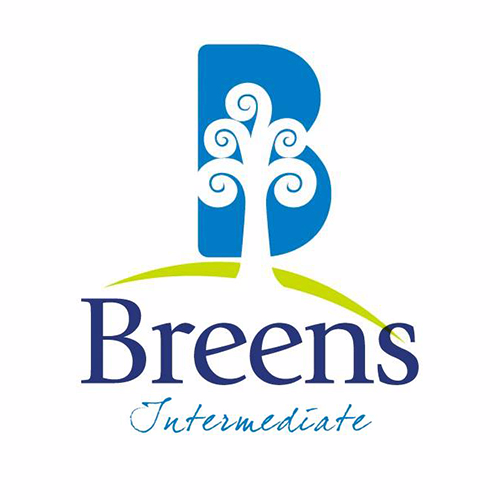
Photo by Nikki Clarke
Kupu (Words)
Some simple instructional language.
- E tū — Stand up
- E noho — Sit down
- Haere mai — Come here
- Hoki atu — Go back (to where you came from)
- Turituri — Be quiet
- Hoihoi — Be quiet
- Homai te ... — Give me the (see page 10 for list of nouns)
- Pekepeke JumpTō ringa ki runga — (Put) your hand up
- Hope — Hands on hips
- Pōkai ō ringaringa — Fold your arms
- Pōkai ō waewae — Cross your legs
- Whiri ō ringaringa — Fold your arms
- Whiri ō waewae —Cross your legs
- Hurihuri — Turn around
- Whakamārōrō — Stretch
- Takoto — Lie down
- Pakipaki —Clap (kotahi pakipaki = one clap(rua pakipaki = two claps, etc)
- Titiro — Look
- Whakarongo — Listen
- Hongihongi — Smell
- Kōrero — Speak
- Whakahokia te ... — Put the (item) back (see page 10 for a list of nouns)
- Waiho te ... — Leave the (item) alone (see page 10 for a list of nouns)
- Kei whea te ... — Where is the (item) (see page 10 for a list of nouns)
- He (noun) — A, an, some(i.e. he āporo tēnei - this is an apple)
Some common Māori nouns
- Upoko — Head
- Makawe — Hair
- Taringa — Ears
- Whatu — Eyes
- Tukemata — Eyebrows
- Ihu — Nose
- Waha — Mouth
- Paparinga — Cheeks
- Kauae — Jaw
- Korokoro — Throat
- Poho — Chest
- Ringaringa — rms, hands
- Waewae — Legs, feet
- Puku — Stomach
- Nono — Buttocks
- Pene rākau — Pencil
- Pene — Pen
- Pukapuka — Book
- Tīoka — Chalk
- Kuaha — Door
- Karaka — Clock
- Kai — Food
- Inu — Drink
- Wai — Water
- Tūru — Chair
- Tēpu — Table, desk
- Rorohiko — Computer
- Pēke — Bag
- Rākau — Trees (and wooden objects generally)
- Maramataka — Calendar
- Tiwhikete — Certificate
- Reo Irirangi — Radio
- Pouaka Whakaata — Television set
- Pikitia — Picture
- Mā — White
- Pango — Black
- Whero — Red
- Karaka — Orange
- Kōwhai — Yellow
- Kākāriki — Green
- Kahurangi — Blue
- Parauri — Brown
- Tama — Boy
- Kōtiro — Girl
- Tangata — Person
- Tāne — Man
- Wahine — Women
- Tamaiti — Child
- Rangatahi — Youth
Saying hello
- Kia ora — Hello, good health
- Tēnā koe — Hello to one person, thank you to one person
- Tēnā kōrua — Hello to two people, thank you to two people
- Tēnā koutou — Hello to lots of people (more than three), thank you to lots of people
- Kei te pēhea koe/kōrua/koutou? — How are you to one person/two or more/three or more?
- E pēhea ana koe/kōrua/koutou? — How are you to one person/two or more/three or more?
- Kei te pai ahau/māua/mātou/ — I/we two/we three or more
- E pai ana ahau/māua/mātou — (am/are fine)
- Āe — Yes
- Kao/Kāore — No
- Tērā pea — Maybe
- He Taonga te Reo — The Māori Language is a Treasure
- Tōku Reo, Tōku Mana — My Language, My Mana
Counting in Māori
- 1 Tahi
- 2 Rua
- 3 Toru
- 4 Whā
- 5 Rima
- 6 Ono
- 7 Whitu
- 8 Waru
- 9 Iwa
- 10 Tekau (Tua-ngahuru)
- 11 Tekau mā tahi Tekau (10) Mā (+) Tahi (1)
- 12 Tekau mā rua Tekau (10) Mā (+) Tahi (1)
- 20 Rua tekau Rua (2) Tekau (10)
- 21 Rua tekau mā tahi Rua (2) Tekau (10) Mā (+) Tahi (1)
- 25 Rua tekau mā rima Tekau (10) Mā (+) Rima (5)
- 30 Toru tekau Toru (3) Tekau (10)
- 31 Toru tekau mā tahi Toru (3) Tekau (10) Mā (+) tahi (1)
- 38 Toru tekau mā waru Toru (3) Tekau (10) Mā (+) Waru (8)
- 40 Whā tekau Whā (4) Tekau (10)
- 50 Rima tekau
- 60 Ono tekau
- 70 Whitu tekau
- 80 Waru tekau
- 90 Iwa tekau
- 100 Kotahi rau Kotahi (1) Rau (100)
- 101 Kotahi rau tahi Kotahi (1) Rau (100) Tahi (1)
- 111 Kotahi rau tekau mā tahi Kotahi (1) Rau (100) Tekau (10) Mā (+) Tahi (1)
- 225 Rua rau rua tekau mā rima Rua (2) Rau (100) Rua (2) Mā (+) Rima (5)
- 1000 Kotahi mano Kotahi (1) Mano (1000)
- 1020 Kotahi mano rua tekau Kotahi (1) Mano (1000) Rua (2) Tekau (10)
- 2354 Rua mano toru rau rima tekau mā whā Rua (2) Mano (1000) Toru (3) Rau (100) Rima (5) Tekau (10) Mā (+) Whā (4)
